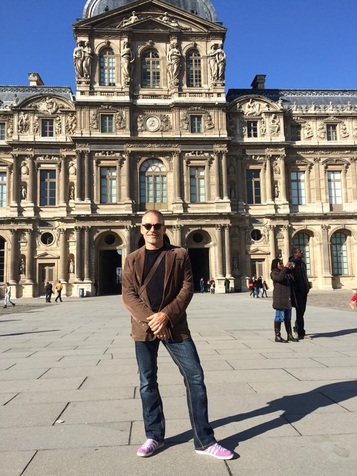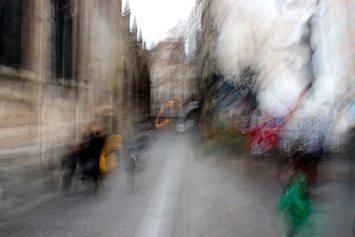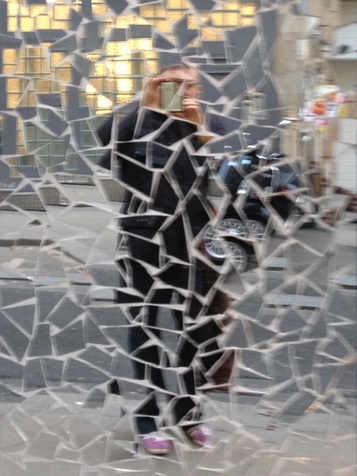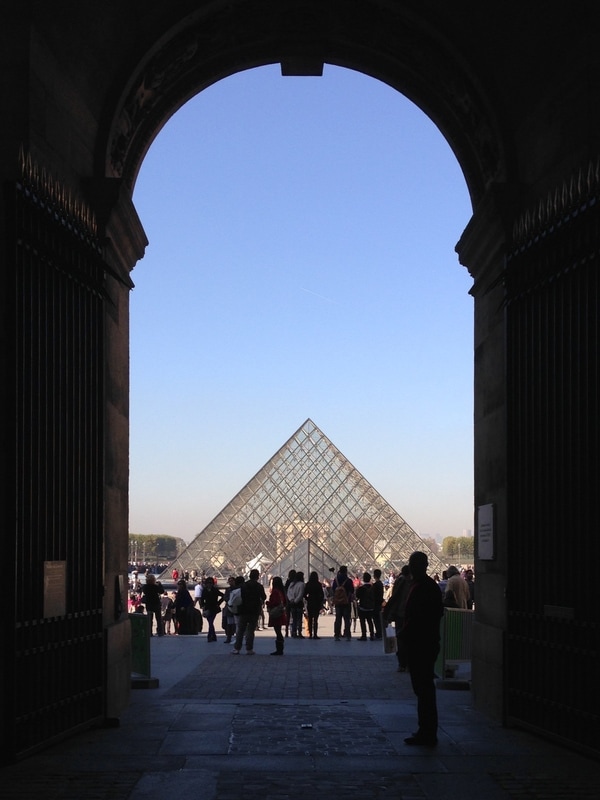2) FLÂNEUR
|
Today I began my new career . . . as a flâneur.
A flâneur is someone who wanders the streets aimlessly, enjoying the sights as they present themselves, but having no particular destination or goal in mind. Balzac described flânerie--the act of being a flaneur--as, “Gastronomy for the eye”. Only the French would have a word for it, surely! Paris is the ideal city to become a flâneur. Edmund White writes, in his novella The Flâneur, that Parisians consider the sidewalk the stage just as much as when they are at the theatre, at the office, at a cafe, or simply chez soi, at home. They are dressed to perform, dressed to be seen, dressed to be admired. It starts with a glance. The initial contact is important for one's future relationship. The first glance needs to be brief, surreptitious, courteous, but also interested, and somehow complimentary. The glance needs to be an acknowledgement: I see you, I see your style, I see your beauty, I see your uniqueness, I see your specialness. One needs to acknowledge these attributes . . . but don’t get too familiar. If you'd like to proceed down that dangerous path you had better be prepared to carry it through to the bitter end. “Sweep me off my feet and give me happily ever after . . . or else,” comes the challenge to a too presumptuous first glance. In general, one's initial glance is met with indifference, stiff coolness, disdain. The action of dismissing an unwelcome glance from a stranger on the part of a Parisian involves a slight lifting of the chin, a slow turning away of the head, pursing of the lips, and often, a protracted inhalation of breath. Depending on the situation—and particularly if the initial glance lingered longer than desired by the look-ee--there might then be a brief hard stare, given directly into the look-er's eyes, delivering a blast of the deepest loathing that slays the inner resolve of the look-er; a warrior of love, fallen in battle, slain by the servant of the devil, ego. One looks away, ashamed. Brought down a little, and made to feel slightly less than one was before. How dare you gaze so liberally upon such perfection? How dare you gaze on something so far above the realm of the mere ordinary? I exaggerate, of course, but flânerie on the streets of Paris is an art. One must take a gentle, leisurely pace when one is flâneur-ing. To be a flâneur is much more about noticing the people occupying the streets, than it is about giving away one's precious attention to the monuments and buildings—abundantly beautiful and noteworthy as they are in Paris. Of equal importance, one mustn't give all of one's attention away to the multitude of interesting objects that abound everywhere. Those walking beside one are an excellent source of over-heard conversations; brief sideways snippets into the lives of one's fellow pietons. Those walking towards one are a study in the art of observation. First, the silhouette; the gait. Then, the clothing, the hair, the shoes, the accessories. If they are in conversation, the voice tone and the language can be discerned on approach. Is it the Parisian dialect with its distinctive melodic way of colouring the atmosphere around its owner like a multi-coloured verbal pashmina? Then, in just a few short seconds they are upon you. As the details that were available from a distance are still being assimilated, suddenly there is the extreme complexity of the face to be scrutinized and absorbed: the bone structure, the skin tone, the ears, the hairline, the nose, the mouth, the lips. The eyebrows arching up, framing the eyes. The eyes. Oh, the eyes. On initial examination of the eyes there is the shape and colour to be discerned. Then, the twin portals that allow deeper access into the soul. Diving deeply into one of those portals, there is the noticing that the physical eyes, too, are external to the Being of this particular individual. Being. Awake, aware, seeing, and being seen, in another. To see one’s own self, to see one’s own Being, in the eyes of another. The choice, and opportunity, in that moment is to not look away. To maintain eye contact . . . just for a moment. In that moment of recognition is the whole of creation, and all of time as well: Infinity and Eternity. In that instant, with no trace of mind or time, there is just Love . . . Angel Stevie Paris, October 29th, 2014. |



